Coloured and preserved roses aren’t a novelty. But the number of growers that are dyeing roses or preserving them so they’ll last forever, has been increasing every year. A look around the stands at IFTF learned that the Ecuadorans come out on top in this particular field.
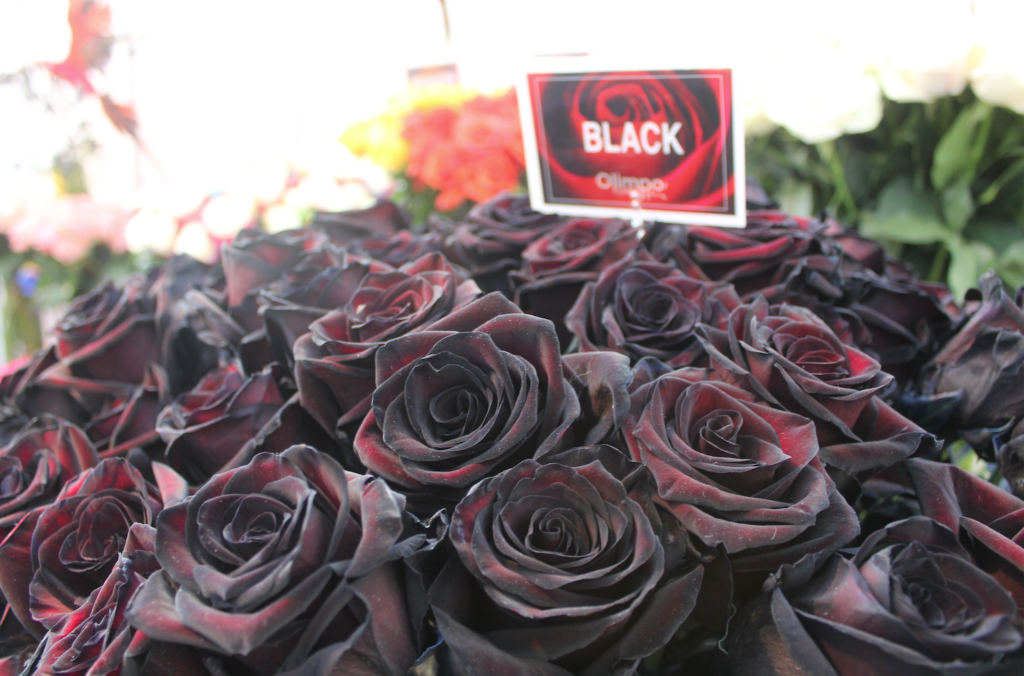
Olimpo Flowers, for example, is one of the Ecuadorean nurseries that sells coloured roses. For the past two years, the company in Cayambe has been using two different techniques, spraying and absorption, explained post-harvest manager Miquel Popayán at IFTF last Friday. Approximately 30,000 roses leave the farm with an artificial colour every month. That’s 2% of the total production that’s realised at the 16-ha company.
The coloured flowers end up mainly in Russia, China and Indonesia, where they are used for special occasions. For Olimpo Flowers, dyeing is a way to differentiate themselves in a market that’s under a lot of pressure. The eye-catcher in the stand were their black Explorers.
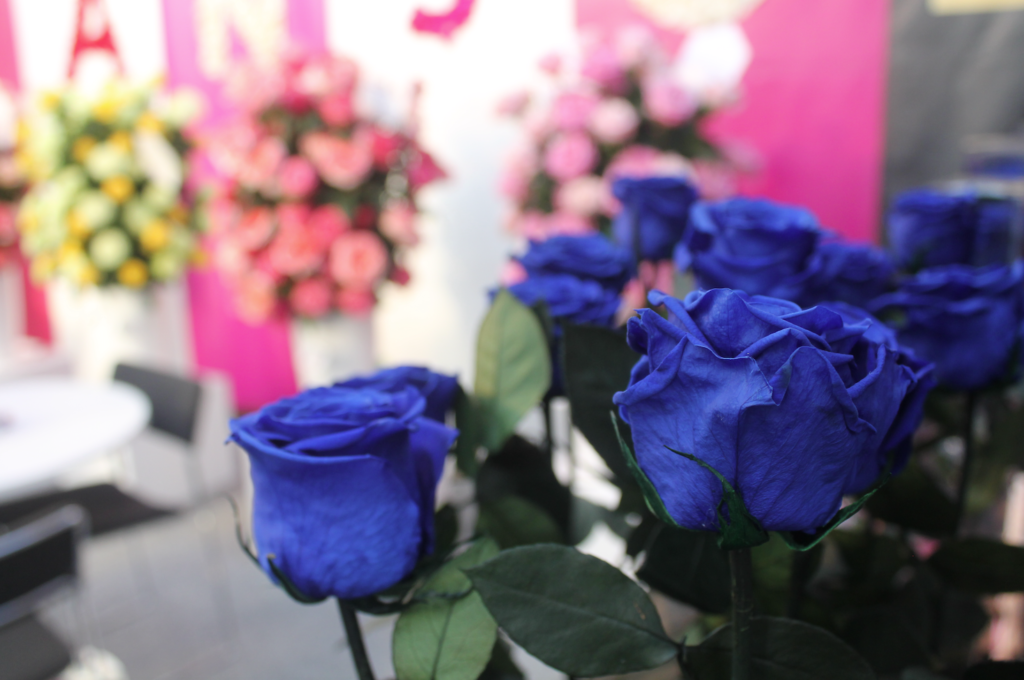
Olimpo Flowers is certainly not the only company in Ecuador that dyes flowers. In a stand a little further on, we spotted a bunch of blue roses – a colour that phalaenopsis growers aren’t unfamiliar with either.
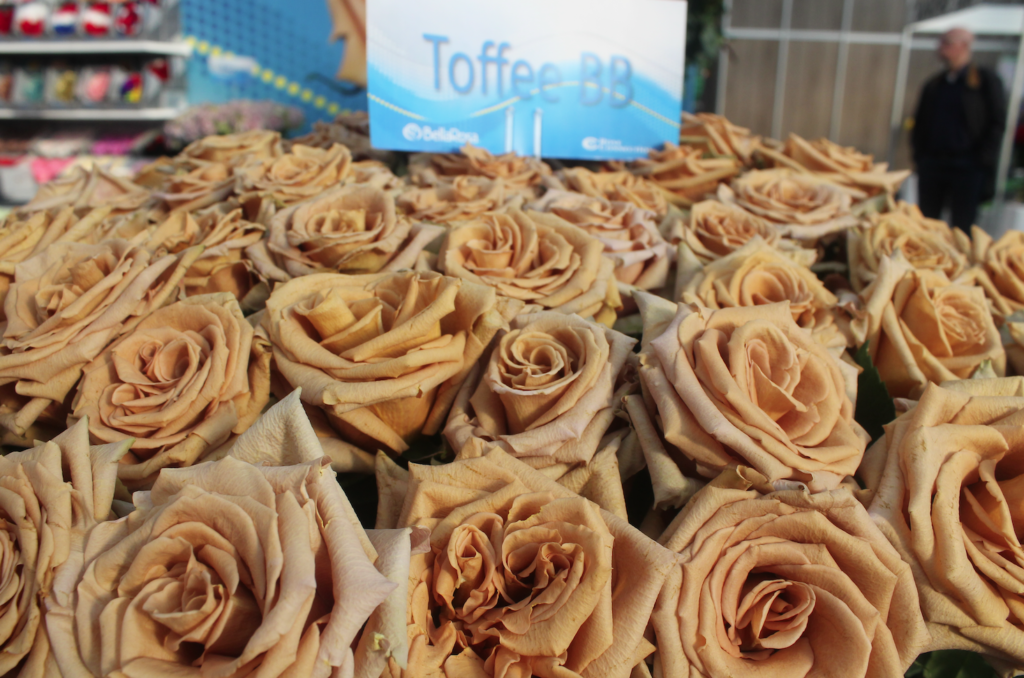
“This is natural”, ensured Gonzalo Luzuriaga, CEO of BellaRosa, pointing at a vase of toffee-coloured roses, appropriately named ‘Toffee’. In addition to their 60-ha production company, BellaRosa owns breeding company Brown Breeding, which developed the Toffee rose. According to Luzuriaga, Toffee is a hit – it’s been selling very well. There are currently around half a million plants of the variety, planted across five different farms.
Mysterious
BellaRosa does sell coloured roses, too. They have been for around 12 years. “It was on a trip to the Netherlands, that I saw Rainbow roses for the first time. I found them so mysterious, I had to find out how it’s done.” Luzuriaga has noticed that coloured roses are very popular in China. BellaRosa also sells preserved roses.
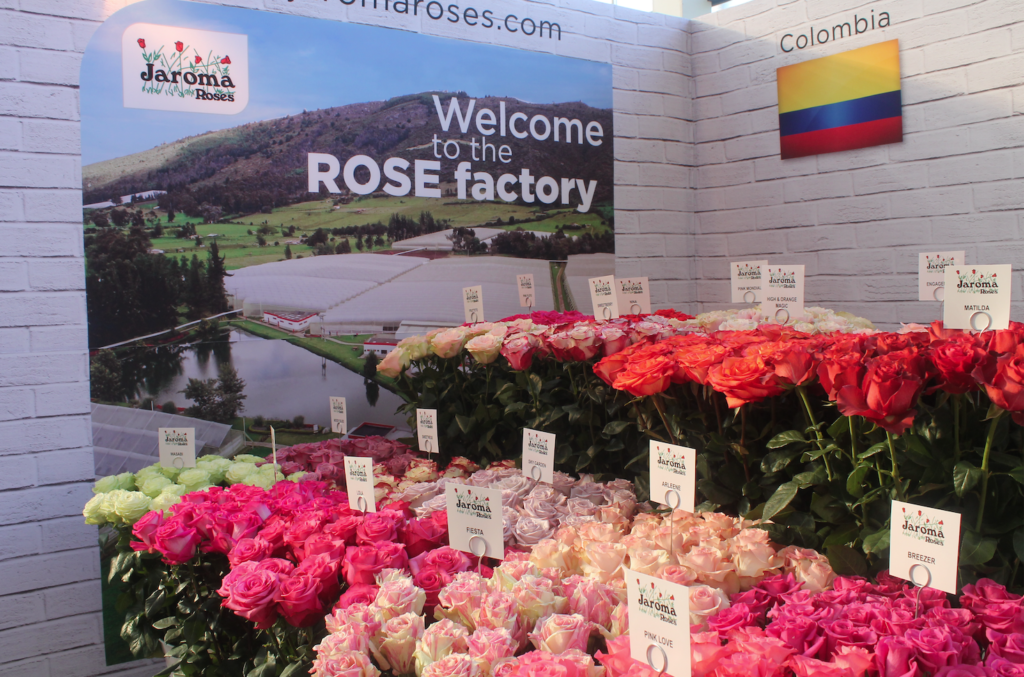
Good news from Jaroma Roses, which have been growing roses since 1986. The farm was expanded with 1 ha, reaching a total of 32 ha, earlier this year. Jaroma also planted twelve new varieties. President of the company, Jaime Rodriguez, said their success is thanks to the fact that they’re active in the higher segment. “There aren’t too many growers in Ecuador and Colombia that produce roses of the same, high quality.”
Less to Russia
In 2016, Jaroma were forced to shift their focus from Russia to the United States. They still remembered Jaroma in the USA, recounted Rodriguez. “But buyers were saying they couldn’t afford our high prices. To which I responded: don’t worry, devaluation is our magic word. With the lower value of the peso and a little goodwill from my side, we managed to recover our place in the American market. Our sales to the USA increased from 20 to 55%. In the meantime, our sales to Russia have gone up again as well – 25 to 28% of our roses are sold there now.”
Before 2008, the company sold no less than 75% of their production to Russia, but that year, this figure dropped to 50% and by 2015, it had gone down to 15%.
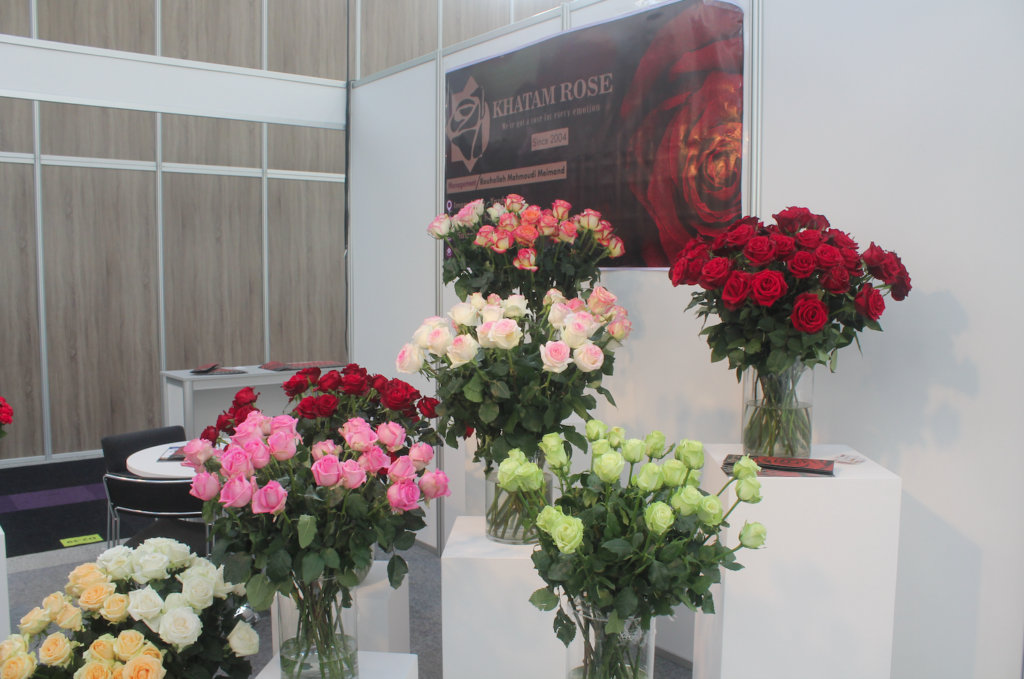
More roses were displayed in the stand of Iran. The trade fair attracted a large number of Iranian exhibitors this year. But their stands were remarkably quiet. The growers from this country are still waiting for permission to export to Europe. Something which might finally happen, if Donald Trump isn’t re-elected this year.
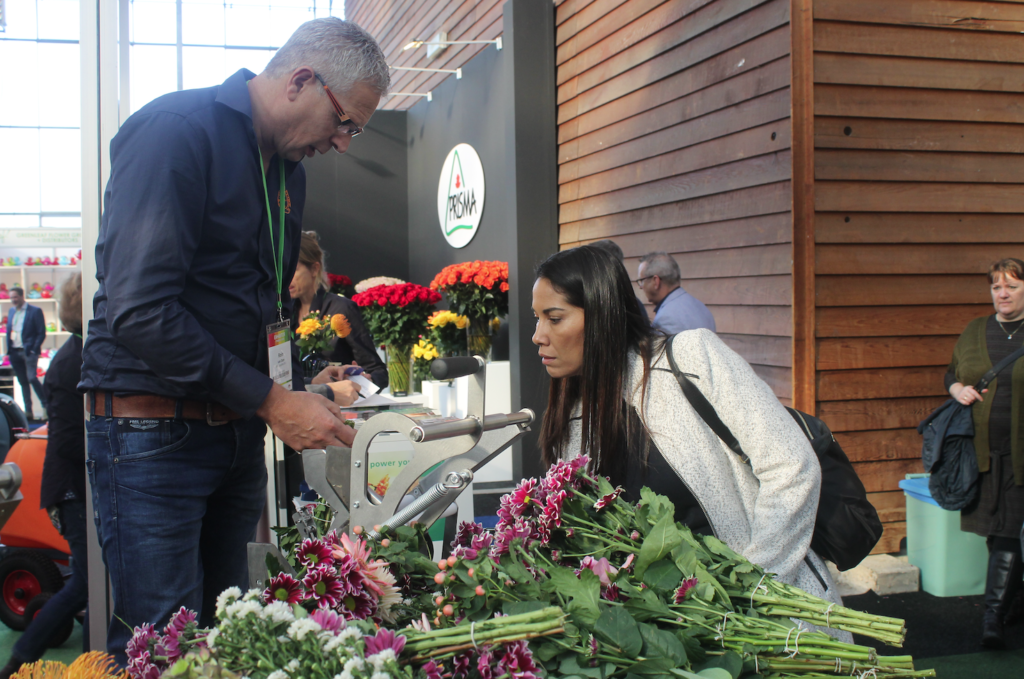
Last year, Ufo Supplies demonstrated their single binding machine at the fair. This year, visitors to their stand could also admire the double binding machine, which was developed in response to growers’ feedback. The single binder is suitable for shorter and smaller bunches of flowers. The double binding machine applies two ties around a bunch, making it suitable for thicker and longer flowers like cut hydrangea.
Binding machines
Both the single and the double binding machine come in two versions: with and without a knife. Jeroen Zonneveld explained that the binding machines are sold to growers, bouquet makers and florists. Sales are going well. At the moment, the double binding machine is sold out. It is only available as a demo model.
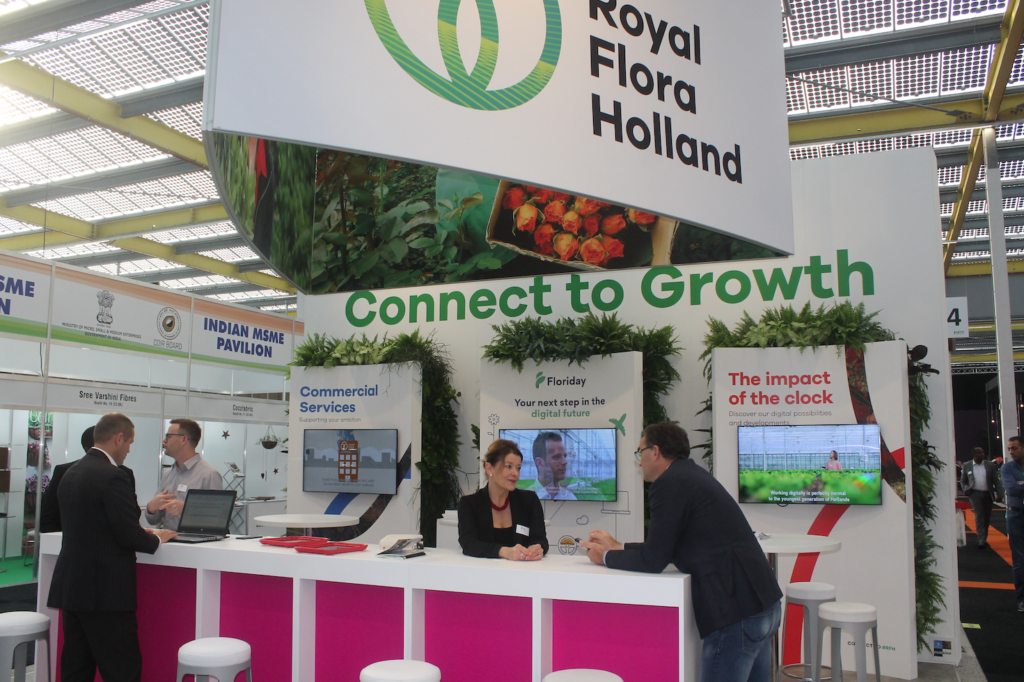
Royal FloraHolland was also exhibiting at IFTF. The auction wants to increase its global market share. In addition, they hope that growers who aren’t involved in the auction at the moment, will join Floriday, or at least, sign up for the platform’s payment service. However, acquisition wasn’t the main objective of Royal FloraHolland’s presence in Vijfhuizen. They wanted to show visitors the many services that the auction has to offer, including Floriday, the auction clock and their commercial services.
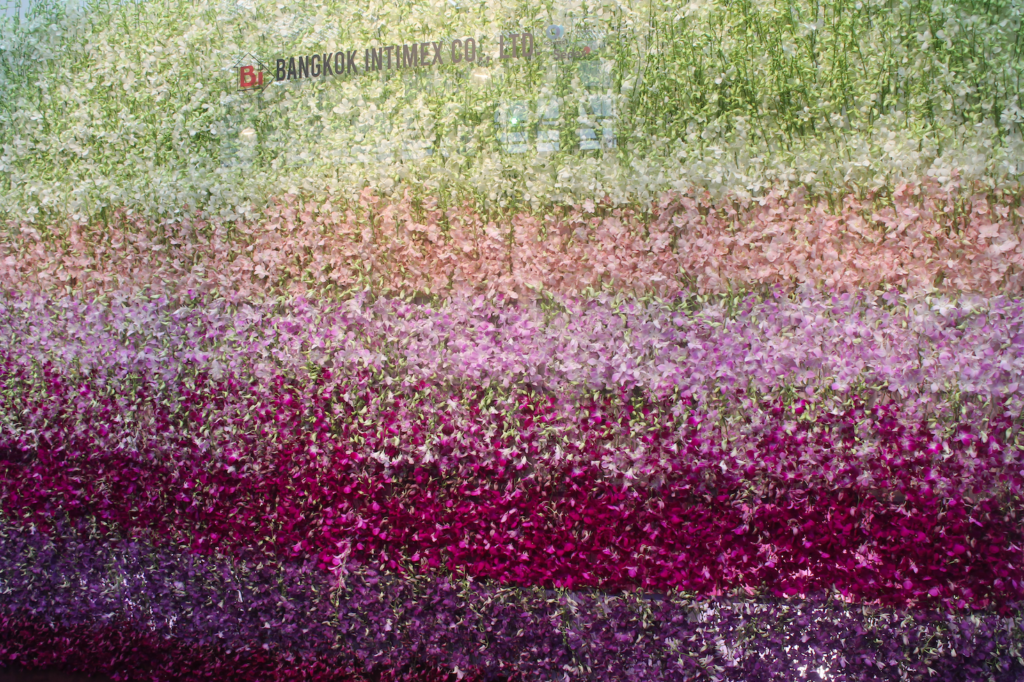
The picture wall in the exhibition centre in Vijfhuizen was reserved for Aleia Roses from Spain last year. But this year, Interfloral quickly responded when they heard the space was still available, and they booked it for Bangkok Intimex.
Interfloral trades the Thai company’s cut dendrobium on the European market. It’s very popular, according to Amanda Vos. “I’ve noticed that people are looking for a larger variety of flowers.” Cut dendrobium is particularly popular among large hotel chains, and is used for weddings and other events.
Here you can find an earlier article on IFTF 2019





